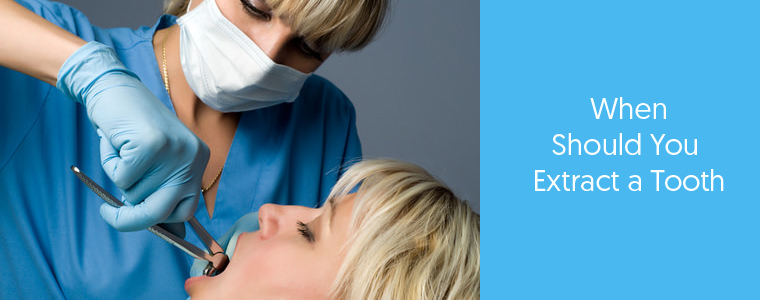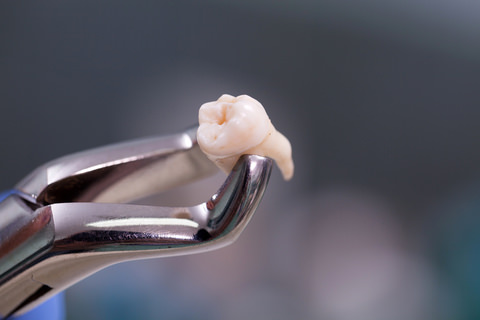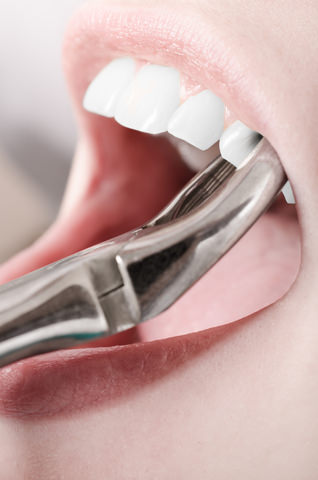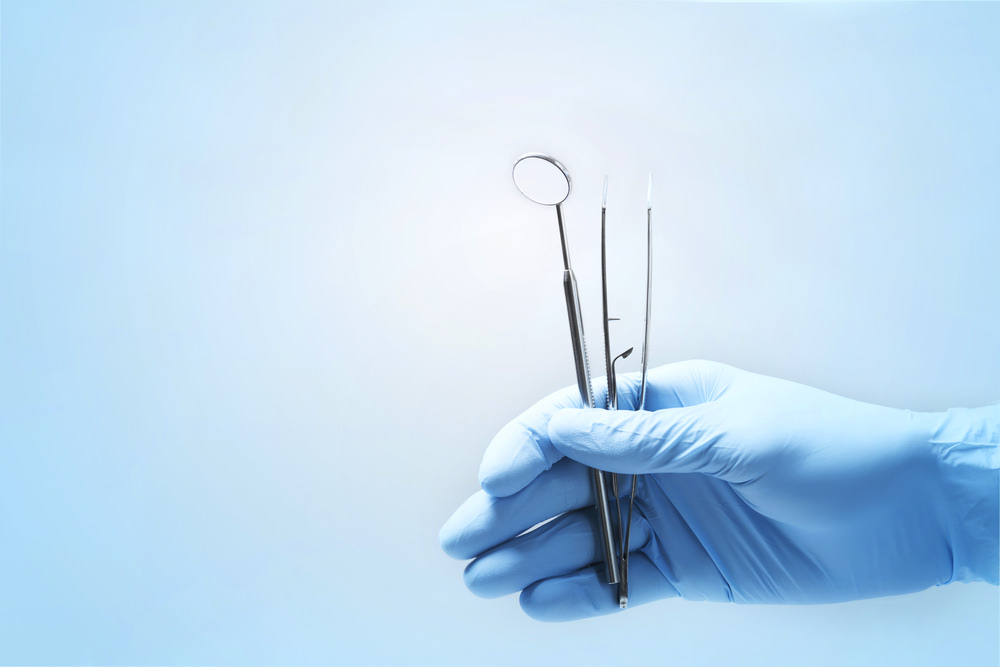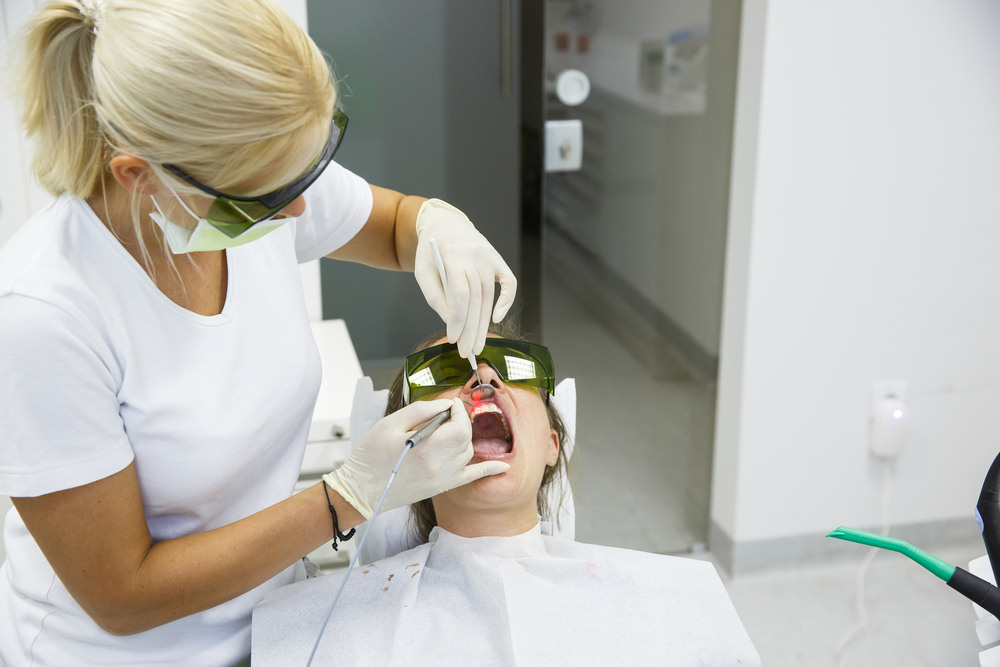When Do You Have to Extract a Tooth?
If your tooth has been broken, damaged, diseased or infected, your Dentist will do anything in their power to try and save it – and with today’s technology, they have many options up their sleeve, including fillings, crowns, bridges, and more.
But sometimes, that tooth is simply beyond repair. So, when do you have to extract a tooth, and why?
Tooth extraction is very much the last resort – the only time your Dentist will turn to remove a tooth is when absolutely nothing else can be done to save it.
Why you may ask? Well, reserving your teeth is preserving your health – and removing them is reducing your health.
The main issues that lead to the use of tooth extraction are when your tooth is fractured all the way down – under these circumstances, generally, nothing can be done to save it.
However, when your tooth is infected, your Dentist may be able to save the tooth instead of having to resort to removal.
In this article, we discuss under what circumstances your tooth can be saved rather than removed, and exactly why it is so important for that tooth to be saved.
When Should I Extract One of My Teeth?
The only time your Dentist will extract one of your teeth is in circumstances where nothing else can be done to save that tooth – it simply is the last resort.
This process has changed from the olden days of Dentistry when Dentists simply used to remove teeth as a way of removing the infection.
However, as technology has advanced over the last century, so this process has advanced, giving you the ability to maintain your health.
There are now only a few reasons your Dentist will extract a tooth.
One is when they are fractured all the way down – a tooth cannot be saved if they are fractured. Another is if they are infected – if your Dentist can get rid of the infection, they will keep the tooth.
However, if they cannot rid your tooth of the infection, they will extract a tooth before disease in your mouth leads to disease in your body.
What Issues Can Arise from Extracting a Tooth?
Extracting a tooth affects more than just the health in your mouth, but it also affects the joint of your lower jaw. Occlusion, or rotation of the upper jaw closer to the lower jaw, is a common outcome.
This also affects the balance in your mouth – that is, if you remove a tooth from one side, you are putting more pressure on the other side whilst eating.
This will lead to wear and tear of your other teeth, and possibly fracture your other teeth because of the excessive pressure you are putting on them. As your remaining teeth may move, this too can cause misalignment of your teeth and change your bite.
Extraction of a tooth can also potentially cause headaches and aches around your neck, make you start grinding your teeth, which in itself leads to serious health problems, and far too more to mention.
Simply put, once you start removing teeth, you are sending yourself on a downward spiral, as it affects the other teeth, causing them to need more dental work.
What are the Last Resorts Prior to Tooth Extraction?
As mentioned previously, if your tooth is fractured all the way down, there is nothing that can be done to save that tooth and extraction is your only option.
However, if the tooth is infected, there are procedures your Dentist should undertake to save that tooth, depending on the location and severity of the infection. These include;
- If the infection is on the outside of the tooth, such as on the ligament or the bone, your Dentist may be able to get rid of the infection and save the tooth
- If the infection is in the gums, such as periodontitis (gum disease), your Dentist may be able to save the tooth
- If the infection is caused by tooth movement, and your Dentist can get rid of the tooth movement by splinting your infected tooth and tying it up to the other teeth. This may rid your tooth of the infection, and they can save your tooth
- If the infection is on the inside of the tooth from the nerve itself, and your Dentist can get rid of the infection from the inside of the tooth, they may be able to save part of your tooth by performing a root canal. Even if you only have a partial amount of tooth remaining, and need to have the rest replaced with a crown, this is still better than having no tooth at all
Unfortunately, if none of the above requirements can be met, extraction is your only option. If your tooth is causing disease in your mouth, it will cause disease in your body, and so it must be removed.
Would you Make the Same Decision on Tooth Extraction for All Age Groups – Child or Adult?
Age is a very vital factor in tooth extraction.
Although your child still has their baby teeth, your Dentist cannot remove the tooth with any more ease, knowing that they have adult teeth still to come.
Not only will it affect the growth of their adult teeth, but it is very important to take into account what age your child is if considering tooth extraction.
If they are very young, there is a high chance of traumatising your child and you would have to resort to putting them under general anaesthetic prior to performing the procedure.
Thus, this is something to be avoided on all accounts if possible.
If your child is older, your Dentist may be able to maintain control of the infection in their baby teeth, just as they can in adults’ teeth.
Hopefully, your Dentist can maintain control of the infection until your child grows to an age of rationality, when your Dentist can extract the tooth without traumatising them.
How is Tooth Extraction Performed?
There are 2 types of tooth extractions:
A simple Extraction – This option is used if your tooth can be seen in your mouth.
Quite a straightforward procedure, your Dentist will loosen your tooth with a tool called an elevator, then remove the tooth with another tool called forceps.
A surgical Extraction – A more complicated procedure, this option is used if your tooth has not erupted into your mouth (such as your wisdom teeth), or has broken off at your gum line.
Your Dentist will generally give you a local anaesthetic, or perhaps even intravenous anaesthesia.
Some other medications, such as steroids, may be provided to reduce swelling and pain, and as such, you should feel some pressure throughout the procedure, but no pain.
During the procedure, they will make a small incision into your gum to remove the impacted (stuck) wisdom tooth or broken tooth. If necessary, some bone may also need to be removed from around the tooth to assist with its removal.
You can expect to feel some level of discomfort after either type of procedure. Over-the-shelf medication that contains anti-inflammatories will help reduce your pain and swelling.
Your Dentist may recommend that you take the first dose before your anaesthetic wears off, and then continue to take them for the next 4 or so days until the pain dissipates.
Other tips you can try to reduce discomfort and help speed recovery include;
- Use an ice pack on the area – This will help reduce swelling.
- Be careful of your diet – Try eating soft, cold foods only, on the side of your mouth that remained untouched, during the recovery period.
- Lifestyle changes – If you are a smoker, do not smoke after surgery. Also, do not spit, or use a straw at all when drinking. Performing any of these actions may pull the blood clot from the hole where your tooth was, slowing down your healing.
- Rinse your mouth – Rinse your mouth with warm, saltwater after eating. This will help to remove any food lodged in your teeth and may also help dissolve any stitches that were used by the Dentist. Use half a teaspoon of salt in one cup of water.
Usually, you will heal within one to two weeks.
However, please contact your Dentist if you have ongoing severe pain – this may be caused by a further complication called a dry socket – excessive bleeding, or a fever.
Conclusion
Modern-day Dentistry has changed a lot in the last century when Dentists simply used to remove teeth as a way of removing the infection.
Our technology has advanced, and along with it so have our procedures. Fortunately for you, this has given us the ability to maintain your health, as reserving your teeth is preserving your health – and removing them is reducing your health.
In this day and age, the only time your Dentist will extract one of your teeth is under circumstances where nothing else can be done to save that tooth – extraction is now considered the last resort.
This includes when your tooth is fractured all the way down, or if it is infected and your Dentist cannot rid your tooth of the infection.
Please remember – extraction is the very last resort to maintaining a happy, healthy smile.
By Dr. V
Created at June 03, 2019, Updated at January 25, 2025


